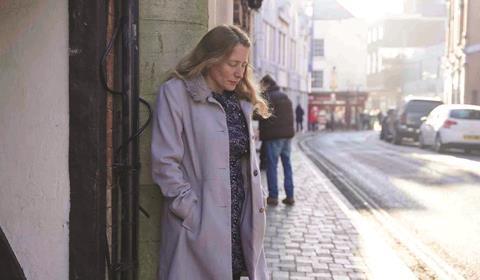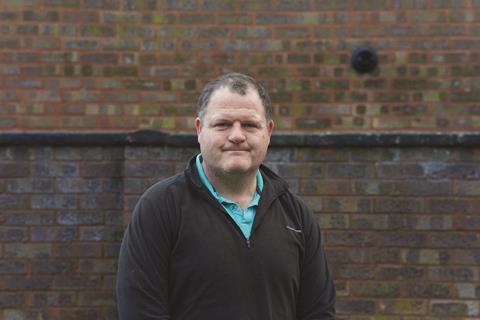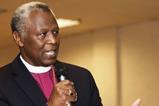The national roll out of buffer zones around abortion clinics is leading to more pro-life activists being arrested

It might seem absurd but, as of last month, a new law has come into force which could criminalise what Christians pray, silently in their heads, if they are standing in the wrong place.
At the heart of the issue is the question of abortion. The Public Order Act 2023 ostensibly targets disruptive protests, inspired by the likes of Extinction Rebellion and Just Stop Oil. But during parliamentary debate, an extra amendment was added by MPs which created special buffer zones around abortion clinics. Now, if you are within 150m of anywhere offering abortion services, it is a criminal offence to influence a person’s decision to access those services, to obstruct them from going inside or to cause “harassment, alarm or distress”.
The story of buffer zones actually begins when Ealing Council in West London imposed one around a single clinic in 2018. That decision was taken in response to a group of Christian pro-life activists who had started protesting outside. Influenced by the American group 40 Days for Life, which organises protests throughout Lent, there are now dozens of abortion clinics around the UK which regularly see Christian pro-life gatherings outside.
Just how disruptive or abusive these truly are is disputed. When a previous government explored the issue back in 2018, it concluded most were “passive in nature”, featuring leaflets being handed out, banners displayed and prayers said. Therefore, they concluded, a nationwide buffer zone law would be disproportionate.
Even before the recent changes to national legislation came into force, several Christians had already been arrested for breaching local buffer zones. Not for screaming abuse at clinic staff, shoving bloodied baby dolls into the hands of women going in and out or trying to blockade entrances. For praying, silently, in their heads.
One such case involved the head of the pro-life group March for Life, Isabel Vaughan-Spruce (pictured, above), who has been arrested outside a Birmingham abortion clinic on several occasions. In a video taken of one arrest, Vaughan-Spruce, who stands alone with her hands in her pockets and head bowed, is told by two police officers that she is breaching the public space protection order simply by being there.
The court has decided that certain silent thoughts can be illegal in the UK
In response, the activist says she is not protesting, merely praying silently in her head. “Engaging in prayer…that is the offence,” the officer replies. Also in Birmingham, Catholic priest Sean Gough was arrested for silently praying while holding a placard saying: “Praying for free speech” inside a buffer zone. Police also charged him with parking his car inside the 150m zone because it had a bumper sticker with the words: ‘Unborn lives matter’.
In Bournemouth, another Christian activist, Adam Smith-Connor, was arrested for praying silently for his own aborted son outside a local clinic. Smith-Connor said he stood with his back to the clinic and head bowed for a few minutes to pray for his son, who he persuaded his then-girlfriend to abort 22 years ago.
Vaughan-Spruce eventually had her case dismissed and even won compensation from the police for wrongful arrest. Gough was also acquitted of all charges in court. But Smith-Connor was not so fortunate. In October this year, the court ruled that simply praying silently, head bowed and hands clasped within a buffer zone amounted to an expression of disapproval of abortion. He was therefore guilty of breaking the law. Speaking outside the court, Smith-Connor said: “Today, the court has decided that certain thoughts – silent thoughts – can be illegal in the United Kingdom. All I did was pray to God, in the privacy of my own mind – and yet I stand convicted as a criminal?”

Despite the law now being enforced across England, no guidance on how police forces and prosecutors should implement the vaguely worded ‘influencing’ clause has been made public. Some media organisations have seen versions of guidance from the Crown Prosecution Service (CPS), which does not appear to contain the rigid protections for silent prayer as before.
Prosecutors have reportedly been told that there is no defence on religious grounds for trying to influence others while inside a buffer zone; however, each case should be considered in its particular circumstances. So, silent prayer is not automatically an offence, but neither is it definitively protected. Instead, it appears that Christian pro-life activists will be in the hands of the police officers who turn up on the day and their own reading of the situation.
Vaughan-Spruce said the introduction of buffer zones was a “shameful day for our country”. By pushing for the criminalisation of silent prayer and consensual conversations, the pro-choice movement sought to sweep “peaceful, compassionate Christians” off the streets entirely, she added. The Alliance for Defending Freedom (ADF), a Christian legal advocacy group which has been supporting Smith-Connor’s cause, has confirmed that they will be appealing his conviction, and decried the national buffer zone law too. “The vague and far-reaching wording of the law could find people in trouble for merely engaging in consensual conversation with a friend or family member about abortion, or simply praying silently in their minds,” said Lois McLatchie Miller from ADF. But she added that the CPS guidance was “encouraging” in that it clarified that silent prayer was not necessarily a crime.
Read more on this story: ‘The first conviction for silent prayer in British history should terrify us all’
However, McLatchie Miller would not be drawn on the ADF’s broader strategy beyond Smith-Connor’s case, declining to say if the group was planning a judicial review or legal test case over the new nationwide law. On the day the ban came into effect, several journalists approached pro-life protesters outside clinics across the country to ask how they would respond. Some in central London had simply moved themselves just over 150m away to evade the law, including Clare McCullogh, who has held pro-life vigils for decades. However, she told the Daily Mail that other activists might decide to defy the “unjust” and “ridiculous” law and remain in place, despite risking arrest.







































No comments yet